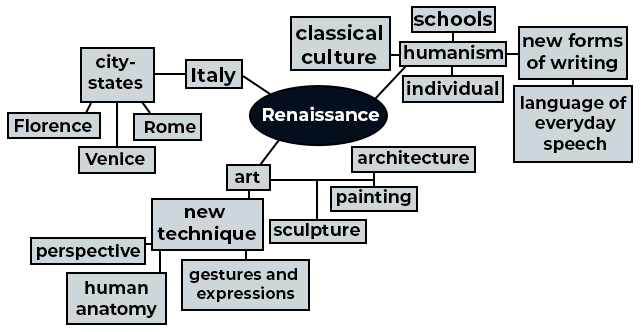Modern Era: Renaissance and Reformation
by Devender
0 3108
- From fourteenth to seventeenth century some significant improvements like Renaissance and Reformation occurred, which brought about a finish to Feudal order.
- Humanism was at the centre of Renaissance
- It implied focus around Mankind, instead of Divine nature
- Renaissance came to suggest another reasoning, which was humanistic and rational, instead of superstitious
- Renaissance brought about ascendance of nearby European dialects in writing, rather than Latin
- American revolution (1776),
- the French revolution (1789)
- the Russian revolution (1905, 1917)
- Catholic Reformation or Counter Reformation:
This era was known as the Modern era. We will discussing both renaissance and reformation one by one.
Renaissance
Renaissance also known as rebirth started in the 14th century and took place till 17th century. It started as a movement to revisit the old scriptures and learn about ancient Greece and Rome
After sometime, it turned into a movement of new ideas in art, religion, literature, philosophy, science and politics. It brought about decrease of Church's impact in the intellectual and social existence of Europe. While the church discussed harmony in eternal life, the Renaissance masterminds assaulted the church and discussed satisfaction on this planet.
In this manner, it helped in linguistic development and consequently, being developed of public awareness. The innovation of Printing press in the first half of fifteenth century prompted additionally spread of schooling and novel thoughts.
The Scientific revolution made ready for another development called Enlightenment that started in 1600s and arrived at its stature in mid 1700s. It focused on thoughts of self-rule, fundamental common liberties and majority rule government. Along these lines, we will see that Enlightenment assumed a vital part in the:

Scientific revolution was likewise a result of the change and started towards the conclusion of the Renaissance age (for example around seventeenth century) and proceeded till late eighteenth century.
The perspectives on the church with respect to actual occasions were disposed of. Just those phenomena were acknowledged which could be clarified and confirmed through strategies for logical perception or scientific observations.
Reformation
Reformation was a movement against the practices & authority of the radical Catholic Church that started in early 16th century.
Protestant pioneers fired setting up Protestant Holy places in various nations of Europe. Under Martin Luther, a priest who went against the Letters of Extravagance and other Church indecencies, the principal Protestant Church was setup in Germany (from 1520-1545) under the Ruler's help.
Nationalism also played a vital role as people started disliking the authority of catholic church in Rome. In England, Queen Elizabeth I, made the church of England, the principal church which was independent of church in Rome and adopted some reformation policies. Protestant churches also promoted the use of languages spoken by local people and hence, Bible was translated into local languages. When the 17th century started, half of the Europe had their own churches.
During late 16th century, a reform process was started by catholic church in Rome against the growing popularity of protestant churches. The reformers also formed an organization in Spain which was known as "Soldiers of Jesus". The members were known as Jesuits and they travelled around different places to win the followers back.
Due to these reformations, religious wars burst at different parts of Europe and many followers from both sides lost their lives. The viciousness against Protestants in Britain brought about their movement to North America where their provinces later established foundation of USA.
In Britain, because of the favourable to Catholic strict strategies of Ruler Charles I, strict viciousness converged into the English Civil war (1642-51) which was battled between the Parliamentarians and the supportive of Government Traditionalists over the form of government.
- Beginning of International Trade and Colianism:
Journeys of discoveries (at end of fifteenth century) additionally portrayed the start of the Advanced Age in Europe. This changed the economy of numerous European countries similarly as with the revelation of these new lands, colonialism started its walk.
The Lord Merchant nexus and the decrease of Feudalism before the finish of medieval times (600 AD to 1500 AD) helped the Rulers in combining their hang on power.
Solid rulers in type of Supreme Governments rose by oppressing the Primitive Rulers and opposing the church's political impedance.

Share:







Comments
Waiting for your comments